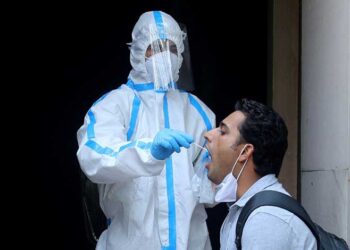As the monsoon season comes, it provides reprieve from the burning heat while also revitalizing the landscape. However, it increases the danger of waterborne infections, which are produced by ingesting contaminated water and cause a variety of health problems. Furthermore, according to the World Health Organization, water-borne infections are considered to account for 80% of all ailments worldwide.
“Waterborne diseases are illnesses caused by microorganisms or parasites present in contaminated water sources. These diseases can be caused by various pathogens such as bacteria, viruses, and protozoa. Some common examples of waterborne diseases include cholera, typhoid fever, hepatitis A, giardiasis and dysentery,” told Dr J Harikishan, Senior General Physician, Kamineni Hospitals, Hyderabad.
The elderly, pregnant women or breastfeeding moms, children, and individuals with chronic diseases such as cancer or liver disorders with compromised immune systems are the most vulnerable to these diseases. According to Dr. Upasana Sharma of Fortis Hospital in Kalyan, “the prevalence of food-borne diseases increases tenfold during the monsoon.” These are mostly harmless disorders.” Food-borne disease symptoms include abdominal ache or cramps, vomiting, nausea, diarrhea, weakness, and slight fever, according to experts.
Measures to prevent monsoon diseases-
1- Bacteria and pathogens can be found in practically any food source.
2- The most common cause of food poisoning is the consumption of raw food.
3-Below are some precautions to take to avoid food-borne illness or poisoning. Cleanliness is an extremely crucial step toward food safety and wellness.
a- Before eating or cooking, always wash your hands.
b- Only drink boiled or filtered water.
c- Cook the eggs and meat thoroughly
4- Avoid eating raw or undercooked food.
5- Thoroughly wash meat, fruits, and vegetables before cooking.
6- When suffering from diarrhea, an ORS solution is also a useful option for hydrating the body. It aids in the replenishment of electrolytes.
7- Before eating, reheat the refrigerated meal.
8- Avoid consuming spicy or difficult-to-digest foods.
9- Consult a doctor promptly if you experience persistent vomiting and diarrhea for more than two days, blood in your stool, a high fever, dizziness or excruciating abdominal discomfort, dry mouth, or a change in the color of your urine.







 Finance
Finance







